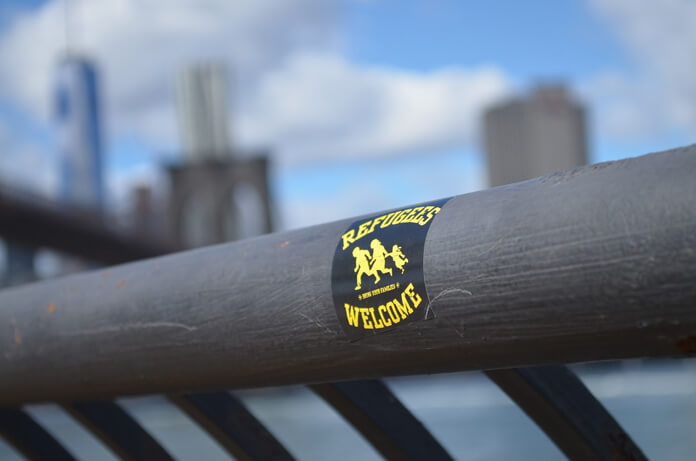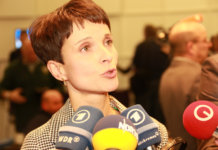Wilkommen bei den Hartmanns, translated to “Welcome to the Hartmanns” is the first film to showcase the German refugee situation with humor. With a top cast, abundance of clichés and a bit of a laugh, the movie has opened to mixed reviews.
Meet the characters
Enter the home of the Hartmanns, who live in a wealthy Munich suburb. The story essentially goes like this: the mother, Angelika (played by Senta Berger) is a retired teacher who suffers from bouts of loneliness – to be compensated with copious amounts of alcohol. She visits a local refugee shelter and is set on hosting a young Nigerian man who lost his family to Boko Haram.
Her husband, Richard (played by Heiner Lauterbach) isn’t too happy with this decision claiming, “It’s enough for Frau Merkel to invite the entire third world into our country – we’re not going to do the same in our home as well,” dismissing his wife’s choice as “helper’s syndrome”. Richard is suffering from a problem of his own, however, known as a “mid-life crisis”. He refuses to age and visits a plastic surgeon for a round of Botox regularly.
The daughter, Sophie (played by Palina Rojinski) is an eternal student and perpetually unhappy single. Then there’s the burnout brother Philipp (played by Florian David Fritz), and son Basti.
Upon his arrival, refugee Diallo (played by Eric Kabongo) quickly assumes the role of family therapist. He tries to hide Angelika’s alcohol, fixes up sister Sophie with a jogging partner and let’s Richard in on a little secret: “You’re an old man.”
Comedy, with a hefty side of stereotypes
The setting of the story in Munich is probably no coincidence. The city famously welcomed thousands of refugees arriving at the city’s train station in September 2015 with granola bars and teddy bears. There is also the radical leftist friend – fulfilling the role of “do-gooder”. On the other end, there’s an “Islamic State” sympathizer at the refugee shelter. Oh, and can’t forget the neo-Nazis protesting against the refugees in general.
Playing against the contrasting attitude in Germany about refugee
Wilkommen bei den Hartmanns appears to play against the contrasting attitude of refugees in Germany: the interest in helping, but the mistrust as well. While sister Sophie and mother Angelika welcome Diallo with open arms, father Richard and brother Philipp are initially uneasy.

“We Germans are still so inhibited about our own identity even though we are a free, tolerant and great country,” Sophie’s love interest, played by Austrian-Tunisian actor Elyas M’Barek, points out at one point in the film. “We’ve got to stand up and defend those values.”The film also points out how many Germans have decided to host refugees in their homes.
Mixed reactions to the film
Wilkommen bei den Hartmanns was released in German theaters on November 3rd. It has since opened to mixed reviews. Many have praised its intentions, but claim hasn’t pushed boundaries enough.
German journalist and author Mortiz von Uslar says in Die Zeit “shouldn’t material like this, which catches our society at its most vulnerable, nervous and insecure, have produced a film that is not just OK, but brilliant, wild, provocative and incorrect in the best sense of the word?”









